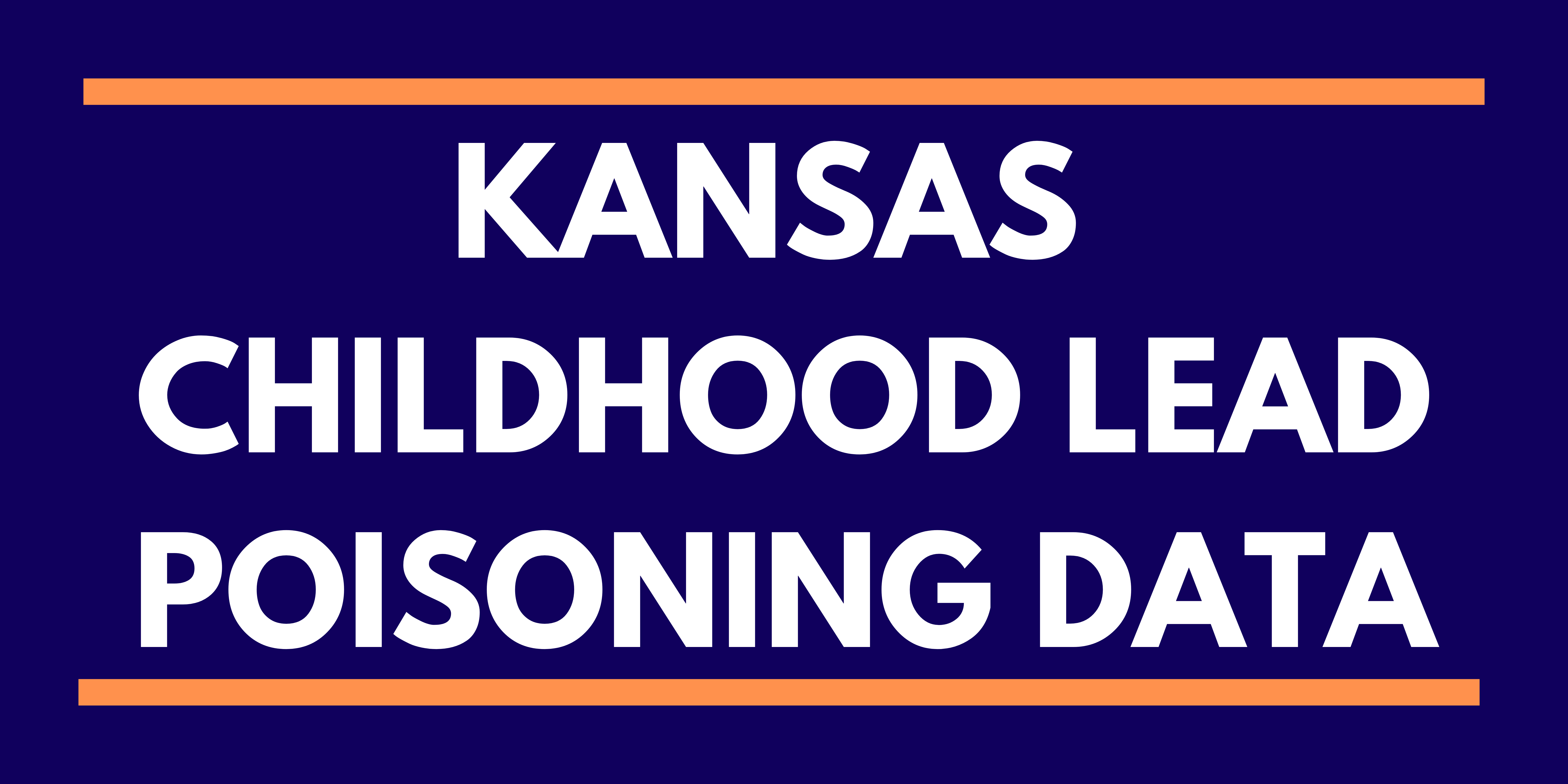Explore Kansas Childhood Lead Poisoning Data
Click on the icon below to explore childhood lead poisoning data:

Blood Lead Reporting
Elevated blood lead test results and non-elevated blood lead test results in children and adults are reportable directly to the Kansas Department of Health and Environment (KDHE) Bureau of Epidemiology and Public Health Informatics within 24 hours.
The results of any blood lead draw (capillary, venous or unknown sample type) on a Kansas child or adult that produces a quantifiable result and is analyzed by a CLIA-certified facility (Click on Reporting Lab Requirements for more information) or an approved portable device (Click on Lead Care II for more information) is reportable to the Kansas Department of Health and Environment (KDHE).
NEW Users of Lead Care Analyzers (Point of Care Machines):
If you are a new user of a point of care machine, please email [email protected] to request an account to be set up.
Contact Information:
Kansas Department of Health and Environment (KDHE)
Bureau of Epidemiology and Public Health Informatics (BEPHI)
Email: [email protected]
Phone: 1-877-427-7317
Fax: 1-877-427-7318
EBL Disease Investigation Guidelines
The Elevated Blood Lead Disease Investigation Guidelines are designed to assist local health departments in the investigation of elevated blood lead within their jurisdictions. The guidelines can be downloaded by clicking here.
Child Blood Lead Venous Sampling Video
No amount of lead in people is safe, and children are especially vulnerable to the effects of lead in their bodies. Because lead is present in many places, it's easy to contaminate blood samples during the collection process, which can cause inaccurate lab results. In this video healthcare providers will learn how to reduce the risk of contamination and support the achievement of accurate blood lead results
KDHE Programs
The Kansas Environmental Public Health Tracking program conducts blood lead surveillance for the state of Kansas. Surveillance activities are provided through a partnership with local health departments and other entities involved in the testing, reporting, monitoring, and management of blood lead. Blood lead data for Kansas is compiled and made available through the data query tool or by submitting a secure data request.
The Kansas Childhood Lead Poisoning Prevention Program is dedicated to increasing awareness and providing education about childhood lead poisoning and prevention. The program works with others to accomplish our goal of reducing childhood lead poisoning. This program collaborates with the Tracking program to conduct surveillance and provide blood lead data through the query function and the secure data request process.
The Kansas Residential Lead Hazard Prevention Program (RLHPP) is responsible for the regulation, licensing, and monitoring of lead related activities within the state. For more information about the RLHPP program, please click on RLHPP and you’ll be directed to their website.
Education and Outreach Materials
New Training: Childhood Lead Poisoning Prevention
We are pleased to inform you that the Childhood Lead Poisoning Prevention Training (online) is now available!
CDC developed a series of video educational content in two training modules:
- Module 1: Foundations of Lead exposure
- Module 2: Strategic Planning and Implementation of the Four Key Strategies of a Lead Prevention Program and Evaluating its Impact.
The course is designed to educate healthcare providers and public health professionals about the importance of lead poisoning as a public health problem and the need to increase lead testing and linkage to care services for young children. The training will fill gaps in knowledge regarding the hazards of lead and provide lead program implementation suggestions for CDC’s state and local partners and other public health professionals based on best practices. The online format will allow training on demand for our partners, reducing the need for travel and accommodating ongoing training needs.
Continuing education credits are available for a wide range of medical and public health professionals.
Course Link: https://www.cdc.gov/nceh/lead/resources/lead-poisoning-prevention-training.htm